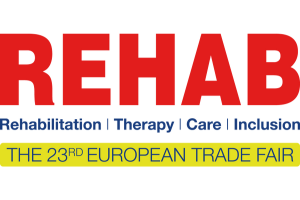It can affect anyone - More attention for paediatric stroke
“There is too little awareness of childhood stroke in paediatrics, which is why diagnosis and adequate treatment are often delayed. As a result, epilepsy in children after a stroke is also completely underestimated, especially the potentially negative effects on children's cognitive development. If detected early enough, there are good treatment options with medication and often also epilepsy surgery,” says Prof Dr Steffen Berweck. He has always had a research interest in the reorganisation of the brain after a stroke. With his lecture on Friday, 23 May at 4.15 pm at the CON.THERA conference, he would like to raise awareness of the topic among doctors and therapists in paediatrics.
International studies show: Early intervention is important
Are there medical tips for parents and carers? “International research and practice show that the earlier a therapy concept starts, for example in the first year of life, the better the treatment prospects. Therapists who are certified to carry out the Assisting Hand Assessment have already dealt with the topic more intensively and can help with the development.” - Prof Dr. Steffen Berweck
Families are not alone - valuable help from stroke child guides
At the rehab clinic in Vogtareuth, Corinna Eitel supports young stroke sufferers and their families as a child stroke counsellor. Childhood strokes are a rare disease. Around 300 to 500 children are affected every year. There is a high number of unreported cases. The German Stroke Foundation has established guides at four locations throughout Germany as part of the Children's Stroke Help programme. This valuable service is free of charge and completely neutral. It involves the entire family, the neighbourhood and, above all, siblings. Corinna Eitel looks after Bavaria, Baden-Württemberg and Hesse.
As a trained occupational therapist in neuropaediatrics, Eitel knows the problems. As a guide, she offers affected families a network with information, guidance through the jungle of social benefits and organises therapeutic links to social paediatric clinics or specialist facilities. She has found many schools to be very committed. “But you shouldn't underestimate the special needs of stroke children. Spatial adaptations are often required, the need for aids can be immense, there is a lack of qualified school support, compensation for disadvantages must be applied for, the learning environment must be appropriately quiet and smaller classes are best. And above all, the children miss their friends. “Peer groups of the same age” are a major challenge during puberty, for example.”
The consequences of a stroke are individual and lifelong
What can the consequences of a childhood stroke look like? “The severity is very individual, as are the causes, which are not always clear,” explains Corinna Eitel. “Symptoms such as flickering eye movements and impaired balance can indicate a stroke, and the consequences can then vary in severity. From hemiplegia to speech disorders, cognitive and attention problems and even visual field impairments. Our work with children who have suffered a stroke begins when others stop and the families are at home and have to cope with everyday life.”
The German Stroke Foundation will be presenting its work and, in particular, the Stroke Child Guides project at the forum in Hall 2 of REHAB Karlsruhe and at its exhibition stand.
